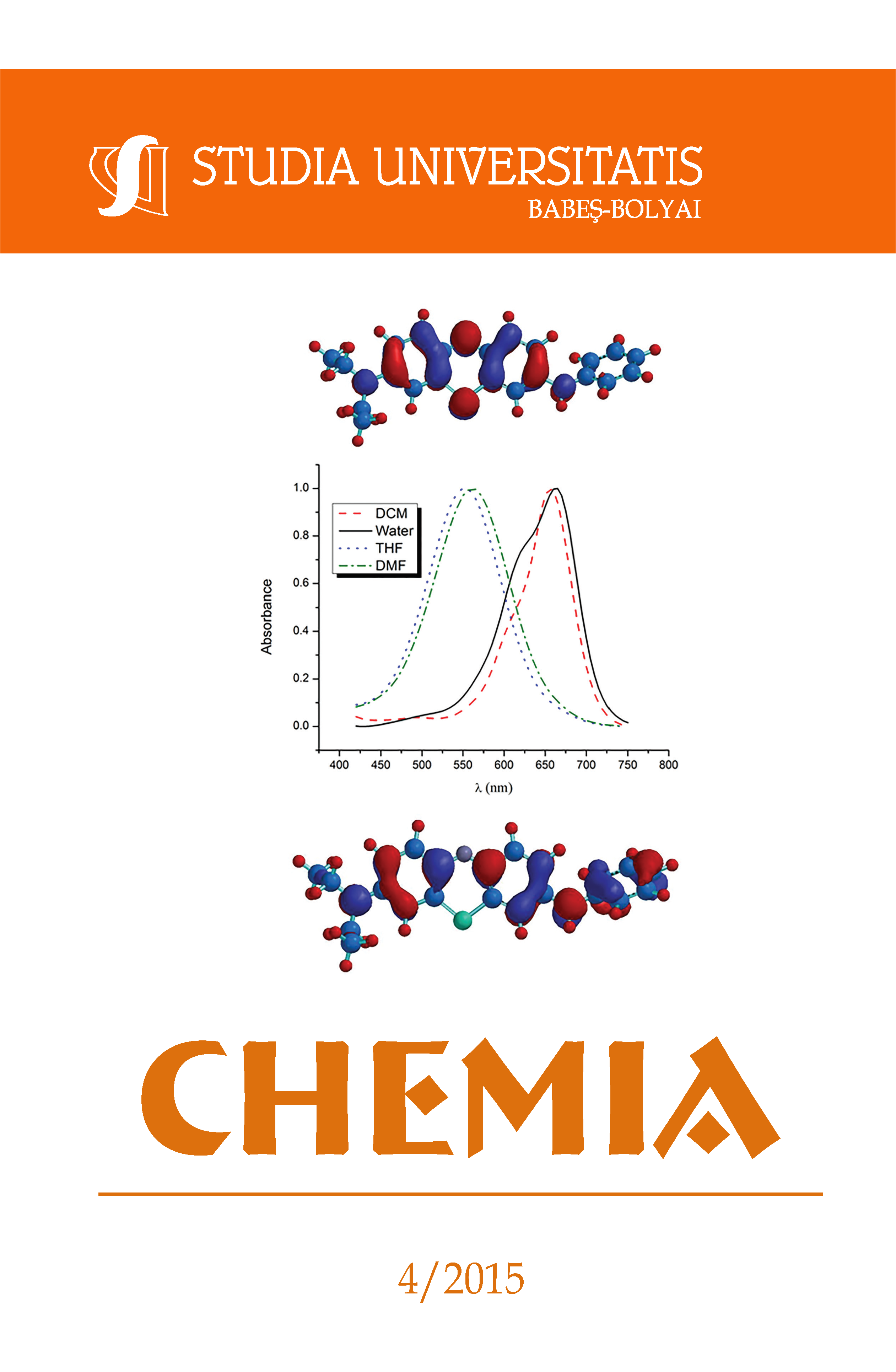MULTI-METHOD ANALYSIS OF BRONZE AGE CERAMICS FROM SATU-MARE COUNTY, ROMANIA
Keywords:
ancient ceramics, physical and mineralogical analyses, reference loam, Bronze Age, Otomani culture, RomaniaAbstract
Bronze Age settlements have been discovered in the region of river Eriu, Satu Mare County, Romania. This study includes the archaeometric examination of eight ceramic artifacts dated from the Early to the Middle Bronze Age, representing the Otomani culture. The used methods were petrography, scanning electron microscopy (SEM) equipped with energy-dispersive X-ray spectroscopy (EDX), X-ray powder diffraction (XRD), Fourier-transform infrared spectroscopy (FT-IR) and thermal analysis (thermal gravimetric analysis - TGA and differential scanning calorimetry - DSC). The study of archaeological ceramics needs an interdisciplinary approach, where scientific research can have an important role in supporting the archaeological study. Our aim was to support by scientific methods the archaeological assumptions, which describe the culture, their knowledge and opportunities. For this purpose, we wanted to select the most appropriate measuring methods and how can the measuring results complete each other for a complex description of the culture. Therefore, the evaluation methodology of the measurement data was given an increased importance. The selection of the samples depended on archaeological background, therefore, the samples allowed a case study for the testing of the measuring methods. The mineral-petrographic analysis included the approximation of firing temperature, identification of potential raw material sources, similarity between samples and the determination of the technology used. An additional objective was the establishment of usability for the testing methods to have accurate measurements. Loam from the region was also analyzed and compared with the results of the ceramic samples.
References
C. Ionescu, L. Ghergari, M. Horga, G. Rădulescu, Studia UBB, Geologia, 2008, 52, 29-35.
C. Ionescu, V. Hoeck, European Journal of Mineralogy, 2011, 23, 937-958.
L.M. Ghergari, C. Stâncel, Studia UBB, Geologia, 2012, 57, 13-21.
V. Hoeck, C. Ionescu, L. Ghergari, C. Precup, Studia UBB, Geologia, 2009, 54, 41-51.
C. Ionescu, L. Ghergari, “Modeling and firing technology - Reflected in the textural features and the mineralogy of the ceramics from neolithic sites in Transylvania (Romania)”, 2002.
V.A. Drebushchak, L.N. Mylnikova, T.N. Drebushchak, V.V. Boldyrev, Journal of Thermal Analysis and Calorimetry, 2005, 82, 617-626.
M. Riccardi, Applied Clay Science, 1999, 15, 393-409.
E. Nemecz, “Agyagásványok”, Akadémiai Kiadó, 1973.
G.W. Brindley, G. Brown, “Crystal Structures of Clay Minerals and Their X-ray Identification”, Mineralogical Society, 1980.
O.S. Rye, “Pottery technology: principles and reconstruction”, Taraxacum, 1981.
M. Maggetti, “Phase analysis and its significance for technology and origin”, in: Archaeological ceramics, Smithsonian Institution Press, 1982, 121-133.
M. Maggetti, “Mineralogical and petrographical methods for the study of ancient pottery”, Università degli studi di Roma “La Sapienza”, 1994.
G. Cultrone, C. Rodriguez-Navarro, E. Sebastian, O. Cazalla, M.J. De La Torre, European Journal of Mineralogy, 2001, 13, 621-634.
G. Survey, “Minerals Yearbook, 2008, V. 1, Metals and Minerals”, U.S. Government Printing Office, 2011.
R.B. Heimann, “Classic and advanced ceramics: from fundamentals to applications”, John Wiley & Sons, 2010.
M.S. Tite, Archaeometry, 2008, 50, 216-231.
H. Mommsen, Archaeometry, 2004, 46, 267-271.
E. Lugwisha, “Identification of Clay Minerals of the Eastern Southern Region of Lake Victoria by Ethylene Glycol and Heat: Xray Diffraction and Infrared Spectroscopy Studies”, Tanzania Journal of Science, 2011, 37.
J. Bertaux, F. Frohlich, P. Ildefonse, “Multicomponent analysis of FTIR spectra: quantification of amorphous and crystallized mineral phases in synthetic and natural sediments”, Journal of Sedimentary Research, 1998, 68.
G. De Benedetto, R. Laviano, L. Sabbatini, P. Zambonin, Journal of Cultural Heritage, 2002, 3, 177-186.
R. Ravisankar, S. Kiruba, C. Shamira, A. Naseerutheen, P.D. Balaji, M. Seran, Microchemical Journal, 2011, 99, 370-375.
J. Madejová, P. Komadel, Clays and clay minerals, 2001, 49, 410-432.
R. Ravisankar, S. Kiruba, A. Naseerutheen, A. Chandrasekaran, G.R. Annamalai, M. Seran, P. Balaji, Archives of Physics Research, 2011, 2, 108-114.
P. Ptáček, J. Brandštetr, F. Šoukal, T. Opravil, “Investigation of Subterranean Termites Nest Material Composition, Structure and Properties”, 2013.
S. Salem, A. Salem, “Mechanisms of Momentum Transport in Viscous Flow Sintering”, 2013.
Downloads
Published
How to Cite
Issue
Section
License
Copyright (c) 2015 Studia Universitatis Babeș-Bolyai Chemia

This work is licensed under a Creative Commons Attribution-NonCommercial-NoDerivatives 4.0 International License.



